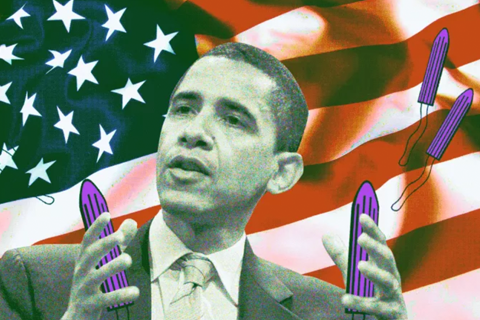On the Tampon Tax
thinx archive
·5 min read

by Emma Glassman-Hughes | 01/21/2016
ATTN WORLD: don't feel bad if you didn't know about the tampon tax that exists in 40 U.S. states… President Obama didn't...
The taxation of a medical necessity specifically for the female population is sexist in preetttyyy obvious ways--we’re making women pay an extra $3,000 a year just to be female. It’s easy to see, no? What’s less obvious, however, are the real women who suffer most at the expense (ha) of tampons.
For example, at least one person on our post about President Obama’s stance against the tax commented with a “Who cares.” While it’s a simplistic and seemingly dismissive remark, this is actually a really valid question to ask. If you happen to be one of the women for whom the act of dropping $7+ monthly on a box of plastic is just “annoying” instead of, say, “impossible” or at least “a stretch,” it’s easy to wonder why anyone would care about a little tax on menstrual hygiene products. Before my THINX, I was making mindless monthly Target trips for $8 tampons (the more expensive, plastic kind, of course--we all know the cardboard ones are icky) and $7 overnight pads, usually using my mom’s credit card and occasionally using my own. Truthfully, in my own economic privilege, I never even noticed the tax on these products. Besides, even if I had noticed them, it wasn’t like I was about to not buy them--I literally needed them.
For a girl or a woman or any menstruating person who has to decide between a meal and a box of tampons, however, the extra tax is certainly noticeable. And believe me, U.S. readers: it isn’t just far-off countries that are responsible for making their women decide between basic needs like nutrition and menstrual health, or forcing women into unhealthy lifestyles. Part of our vision at THINX is to ensure that periods are never a hindrance to any woman or girl around the world, but it would be remiss if we ignored the women and girls in our own country who are also kept out of school because they don’t have access to proper care.
So what’s the reality for so many girls here? Instead of asking staff for supplies (periods aren’t suitable for public conversation, remember??) or staining their clothes at school, young girls in low-income regions of the U.S. are dealing with their periods by going to incredibly concerning and straight up dangerous extremes, like skipping school on heavy days, or leaving one tampon in for multiple days at a time--putting themselves in grave risk of developing Toxic Shock Syndrome (known to be deadly in some cases; life-altering in others). The shame associated with periods is so potent that it’s stagnating the progress of our young girls; why add insult to injury by keeping basic menstrual hygiene products out of the hands of those who need them most?
There’s also the issue of trans men who menstruate and are homeless or in a dismal economic condition, for whom buying menstrual products in public is often a traumatic experience to begin with, on top of the impossibly high expense of a period. The dangers here are equally as valid; for example, if unmanaged, visible period stains can “out” a trans man, leaving him exceptionally vulnerable to violence and abuse of all kinds. All menstruating folks need to have access to proper menstrual care, and making these products exorbitantly expensive is a threat to public health (on sooo many levels).
TBH, existing as a woman in poverty is enough of a degrading and treacherous experience without the added stress of being unable to properly care for natural functions of your own body or the bodies of loved ones. For many women struggling financially, the tampon tax removes any last shred of dignity associated with their periods, and contributes to the very real, cultural stigma and shame attached to all menstruating bodies. Instead of forcing disease, discomfort, and disgrace upon these women, we should be uplifting one another and encouraging healthy relationships to and appreciation for one’s own period.
Lucky for us, there are so many wonderful women in the political sphere who are dedicated to providing dignity and care for every woman in this country, including writer and activist Jennifer Weiss-Wolfe, Queens City Councilwoman Julissa Ferreras, and the many others behind the abolition of the tax in California, Maryland, Massachusetts, Pennsylvania, Minnesota, and New Jersey. So, “who cares,” you ask? Looks like a lot of us--and here’s your chance. Join the conversation here.
by Emma Glassman-Hughes


